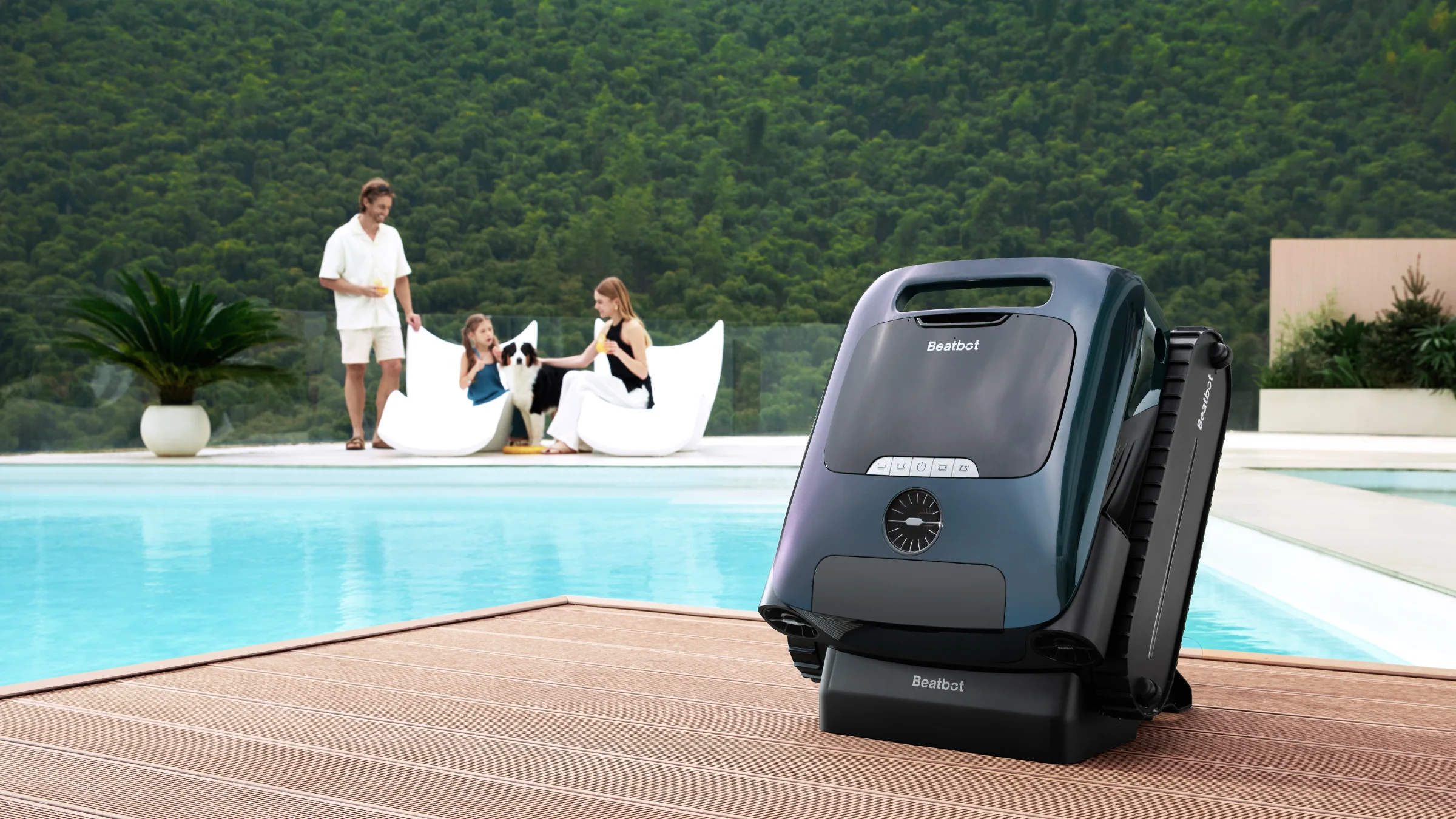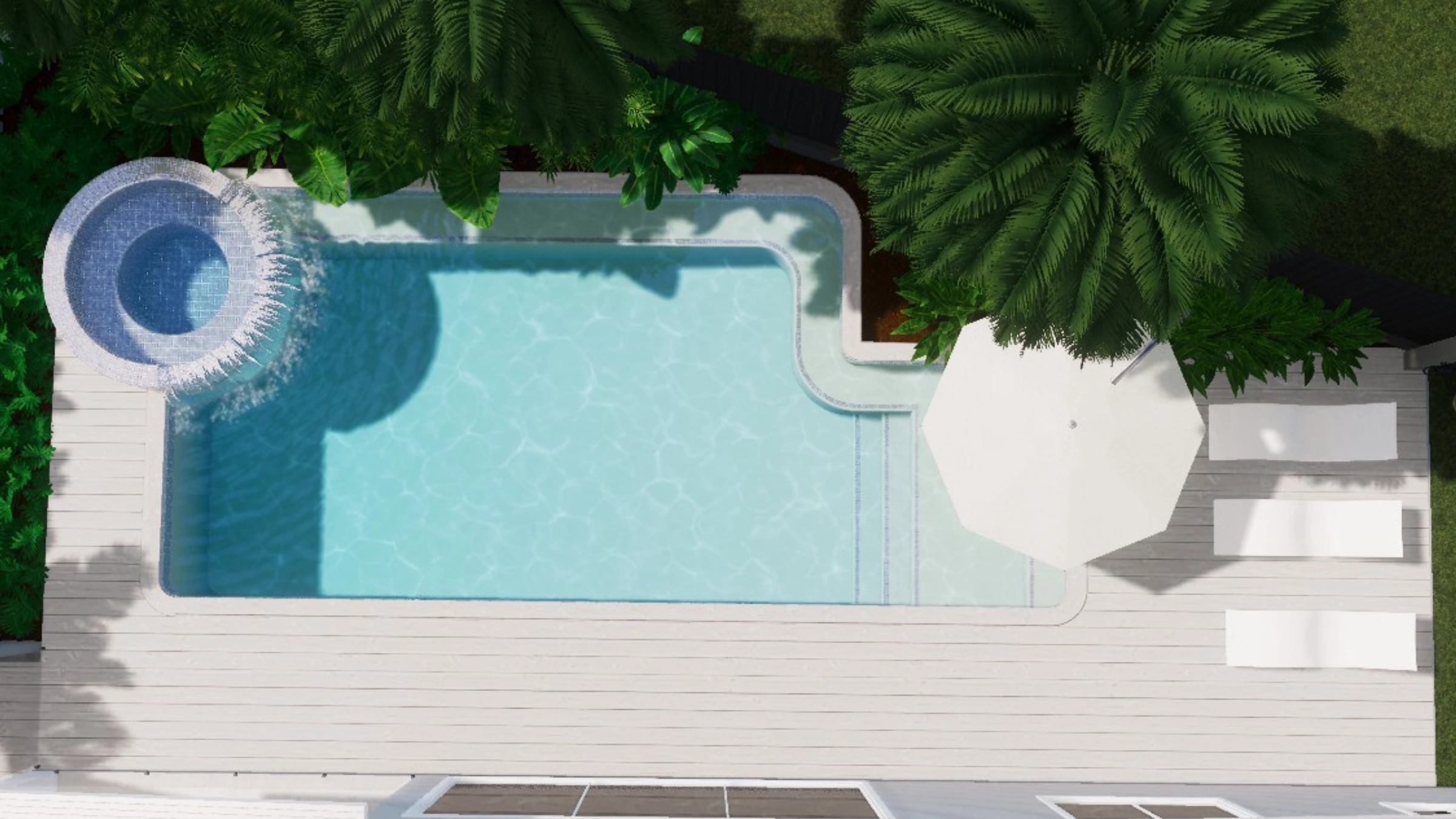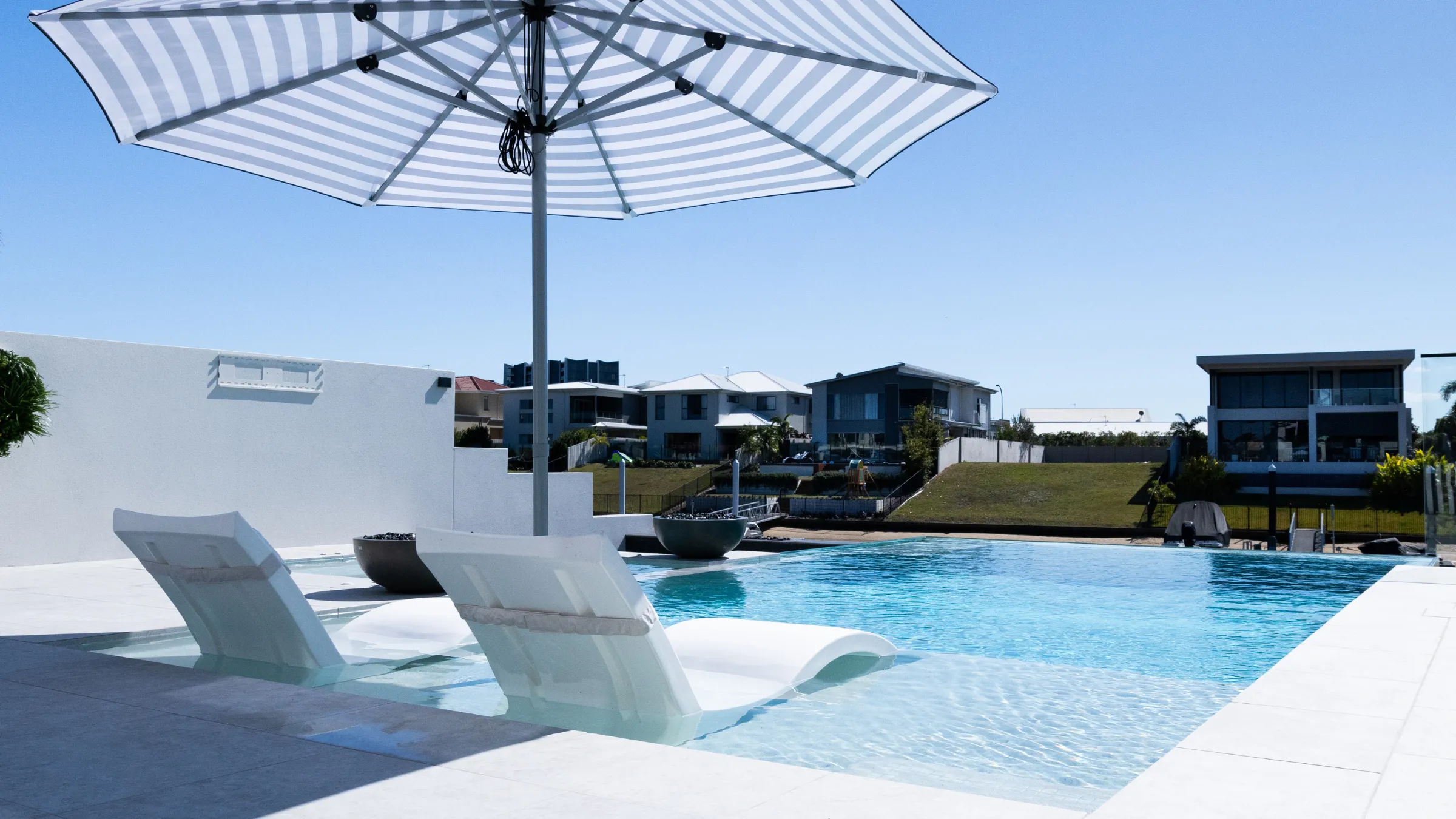Cleaning and maintaining a swimming pool is a chore for most homeowners. It requires regular visits to the pool shop, testing pool water, cleaning the pool filter, adding chemicals, scooping leaves, vacuuming and more - it's a lot of work.
Unfortunately, when a pool isn't maintained regularly, it can quickly result in a green pool with pool chemistry that is out of whack and requiring a pool shock. A pool shock will cause your pool maintenance costs to skyrocket as you'll need to add a huge amount of chemicals from your local pool shop to get back to a clean and healthy pool.
This can all be easily avoided with a simple pool maintenance routine. If all this sounds like too much work, let Poolz help you find a pool maintenance expert in your area.
Good pool maintenance starts with knowing your pool and it's various components.
Pool components
Pool water
The key to a sparkling pool and enjoyable swimming season is keeping your pool water in tip top shape. This starts with regularly testing your pool water chemistry and adding pool chemicals on a regular basis to keep things in check. It is much better to add a small amount of pool chemicals on a regular basis, than to add a lot of chemicals every once in a while.
Pool walls and interior
The walls and interior surface of your pool are in constant contact with your water, so you need to keep them in good repair and free of algae, mould and debris. The best way to do this is to brush the pool walls and the bottom of your pool to avoid algae growth and to use a robotic pool cleaner.
Pool pump and filtration system
The filtration system is the heart of your pool, so it's important to keep it in good working order. You should regularly test and clean your filter and backwash or clean the filter cartridge for best results.
Now that we've covered off the pool components, let's jump into our swimming pool maintenance guide so you become a pool care expert!
Swimming pool maintenance
Scoop out leaves and other debris
Leaves and other debris can quickly make their way into your swimming pool, leading to a dirty and unappealing appearance. To prevent this from happening, be sure to scoop out leaves, bugs, twigs, or anything that could end up in the pool on a regular basis.
Ok, so now that we have the basics covered, let's dive into three key principles of pool care you need to understand well.
Good water circulation is critical
One of the most important parts of pool maintenance is ensuring good pool circulation. When water moves, it stays cleaner, clearer and safer. If your pool water circulates efficiently, you'll cut down on issues like cloudy water, pool algae and will keep your pool balanced more easily.
How often should your pool pump run?
One of the most important parts of pool maintenance is ensuring good pool circulation. When water moves, it stays cleaner, clearer and safer. If your pool water circulates efficiently, you'll cut down on issues like cloudy water, pool algae and will keep your pool balanced more easily.
Clean your pool filter and skimmer basket regularly
Given how important your pool pump and pool filter is for good water circulation, the pool filter needs to be kept clean. The pump and filter system can quickly fill up with leaves and debris which will reduce its effectiveness as it will basically be pumping dirty water around your pool So, cleaning your pump and filter should form part of your regular pool maintenance schedule.
Clean your pool on a schedule
To keep your pool in great shape, it's important to develop a regular cleaning routine. This means scheduling regular pool cleanings at least once a week, depending on how dirty and how much use your pool gets. It also means knowing when you need additional maintenance like brushing the walls or using a robotic cleaner to prevent algae growth.
A robotic pool cleaner will cut down the amount of times you need to brush your pool walls, but you'll still need to use some elbow grease from time to time. The weather also has a huge impact on your pool water, so be ready to spend more time cleaning your pool after bad weather.
Put a tennis ball or two into your pool or skimmer box, especially during the summer months when your pool is getting a lot of use and may have extra oils from sunscreen. The tennis balls will absorb those surface oils from your pool water. You can then clean the tennis balls under hot water or put them in the washing machine so they can be used again.
Maintaining proper pool chemistry
One of the most important things to keep in mind when you're maintaining your pool is its correct water chemistry. This means keeping your pH levels and alkalinity balanced, as well as keeping tabs on the chlorine levels. You'll also want to make sure that you regularly test for metals like iron or copper, which can be toxic when they build up in your pool. You can get a pool water testing kit from your local pool shop or online.
pH Levels
A pool's pH determines how acidic or basic the pool's water is. You want to make sure that you maintain a pH level between 7.2 and 7.6 (or as recommended or legislated by your local governing body), as anything lower or higher can have serious health effects on swimmers. To raise or lower the pH level of your pool, use a commercial pH kit or you can use household vinegar or baking soda.
Alkalinity levels
Alkalinity is a measure of your pool's ability to resist pH changes. Too little alkalinity can cause the pH level to swing up and down rapidly, which creates problems like cloudy water or algae growth. The ideal range is 100 to 150 ppm (parts per million). To increase your alkalinity, you can use baking soda or calcium chloride while you should reduce it with acetic acid or muriatic acid.
Sanitiser levels
Pool chlorine is the most common sanitiser used in swimming pools, but there are other options like bromine or salt systems. You should test your chlorine/sanitiser levels regularly and make sure they're within the ideal range for your water type.
Calcium hardness levels
Another key aspect of maintaining a clean and healthy swimming pool is keeping calcium hardness levels under control. Calcium levels need to be within the range of 200 to 400 ppm, and you can adjust them by using calcium chloride or soda ash.
Once you know your pool chemistry levels, you can add the chemicals to get your water balance correct. If you don't understand what each of the pool chemicals does, or how much to add, get in touch with a local pool maintenance company to get some guidance. The last thing you want to do is add chemicals to your pool that make the water unsafe.
Stick to a pool maintenance schedule
One of the best ways to ensure your pool stays clean and safe is to stick to a regular maintenance schedule. This will help you to keep on top of the basic tasks so your swimming pool water is ready for the family every sunny day (or cloudy day I you have a solar heating or electric heating system).
What about during holidays?
When you go away, it's still important to have your pool maintenance taken care of. Most people do this in one of two ways:
- neighbour or friend: if you're lucky enough to have a neighbour or friend knows how to do pool maintenance and is happy to do it, great!
- pool maintenance company: get in touch with your local pool service company and they can provide a quote on what's required while you're away.
As we said, if that all sounds like a lot of work, perhaps it's time to find a swimming pool professional in your local area to ensure your pool equipment, pool water and other systems are in well maintained and ready for a hot summer's day of swimming at a moments notice.
Growing up in Wollongong, NSW, in the 80’s, all the cool kids had pools. I, unfortunately, was not a cool kid, so I spent the summers overstaying my welcome at my neighbours with pools. That was the start of my passion for pools, and it has grown ever since. Nothing instantly relaxes my soul like being in water and not many things make me feel better than diving into a pool that is slightly too cold on a sweaty day.
During my 25 years in the pool industry, I have sold spas, swim spas, above ground pools and fibreglass pools. I always dreamed of designing luxury concrete pools and landscapes, with my lack of drawing ability being the only hiccup until I discovered 3D design about 10 years go. Since that day, I have been extremely proud of designing and seeing to completion many swimming pools that have received industry awards, and more importantly, that my clients have loved. Helping people achieve my childhood dream (and often theirs too!) is an exciting and rewarding privilege.
Designing swimming pools has been the perfect job for me. Every day is different. I love listening to what my clients say, and don’t say, so that I can pick up on all the clues needed to successfully blend form with function and make my designs match their home, life, aspirations, lifestyle, and personality. It’s problem solving in a beautifully delicate creative way which allows me to see stunning homes and amazing suburbs that I might have never otherwise seen, and to work with the loveliest clients who put considerable trust and belief in me by inviting me into their homes, and lives.
The last 10 years has seen many exciting design and technological advances in the swimming pool industry. 3D design has evolved to virtual and augmented reality, pool automation has changed the way we own and care for our pools, and Poolz has revolutionised the way homeowners connect with their ideal pool builder and inform themselves about buying and owning a pool.My role at Poolz now enables me to put all my industry experience to use by helping pool builders and homeowners in a fresh and exciting way, but when I’m not helping make dream pools a reality, you’ll find me bingeing on Netflix (who isn’t?!), watching the mighty Brisbane Lions, or escaping in my 4WD and rooftop tent to enjoy a campfire with family and friends.















